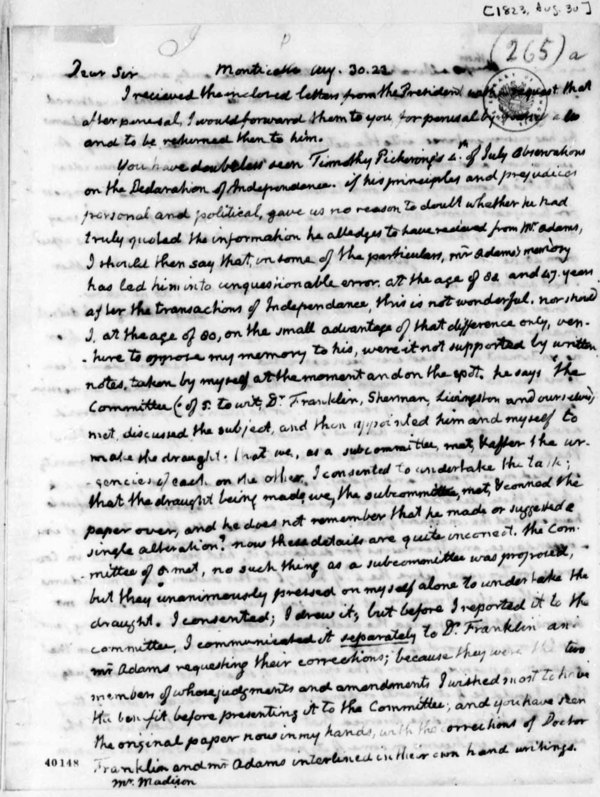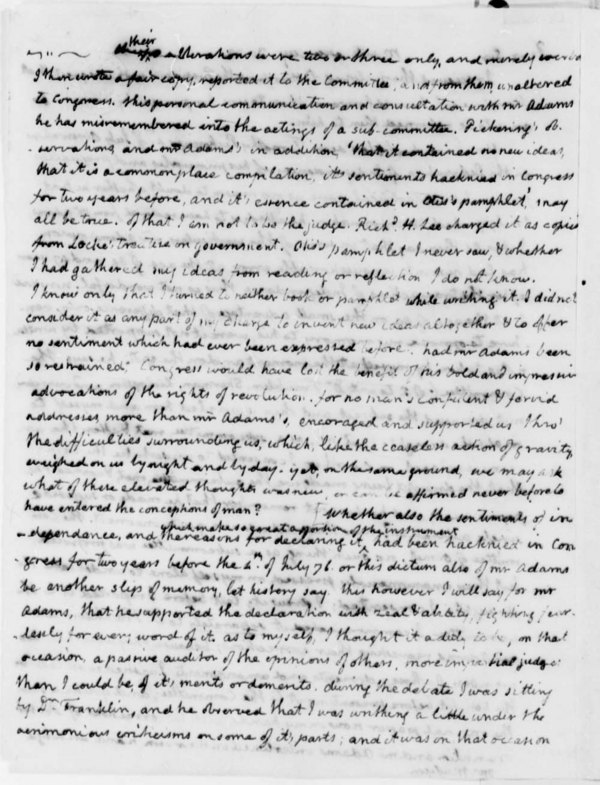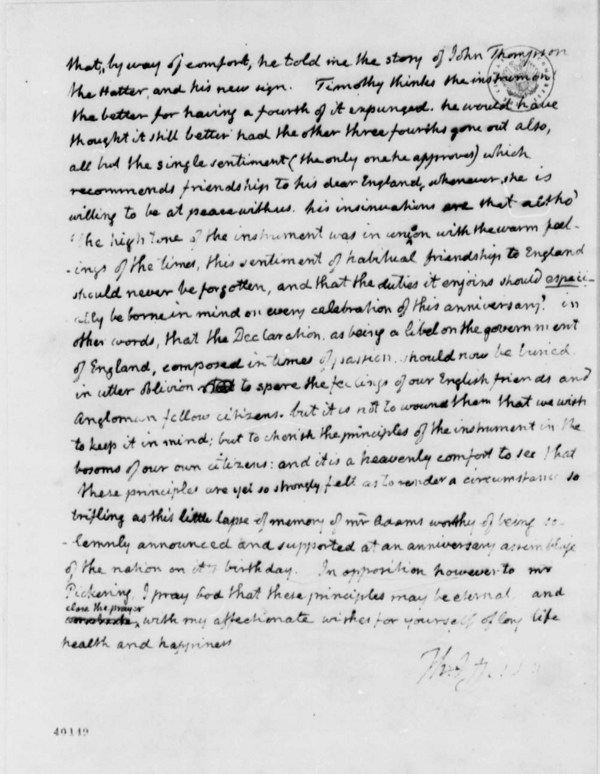Remembrances of the Revolution: Was Authorship Important?
Annotation
In the 1820s, as American politics became increasingly partisan, Federalist opponents of Jefferson and his party, the Republicans, belittled the Declaration of Independence. Timothy Pickering and others charged that the Declaration of Independence was not an intellectual departure, but rather that it expressed ideas that were completely common at the time. In the first excerpt, Jefferson writes to James Madison, answering the charges that the Declaration was a "commonplace compilation." In the second excerpt, Madison responds.



... they [the committee of five tasked by Congress to draft the Declaration] unanimously pressed on myself alone to undertake the draught. I consented; I drew it; but before I reported it to the committee, I communicated it separately to Dr. Franklin and Mr. Adams requesting their corrections; because they were the two members of whose judgments and amendments I wished most to have the benefit, before presenting it to the Committee; ... their alterations were two or three only, and merely verbal. I then wrote a fair copy, reported it to the Committee; and from them, unaltered to Congress. ... whether I had gathered my ideas from reading or reflection I do not know. I know only that I turned to neither book or pamphlet while writing it. I did not consider it as any part of my charge to invent new ideas altogether and to offer no sentiment which had ever been expressed before.
Madison responded on September 23:
Nothing can be more absurd than the cavil that the Declaration contains known and not new truths. The object was to assert not to discover truths, and to make them the basis of the Revolutionary Act. The merit of the Draught could consist only in lucid communication of human rights, a condensed enumeration of the reasons for such an exercise of them, and in a style and tone appropriate to the great occasion, and to the spirit of the American people.
Source
Jefferson to James Madison, August 30, 1823 and Madison to Jefferson, September 23, 1823, The Thomas Jefferson Papers Series 1. General Correspondence. 1651-1827, Library of Congress.